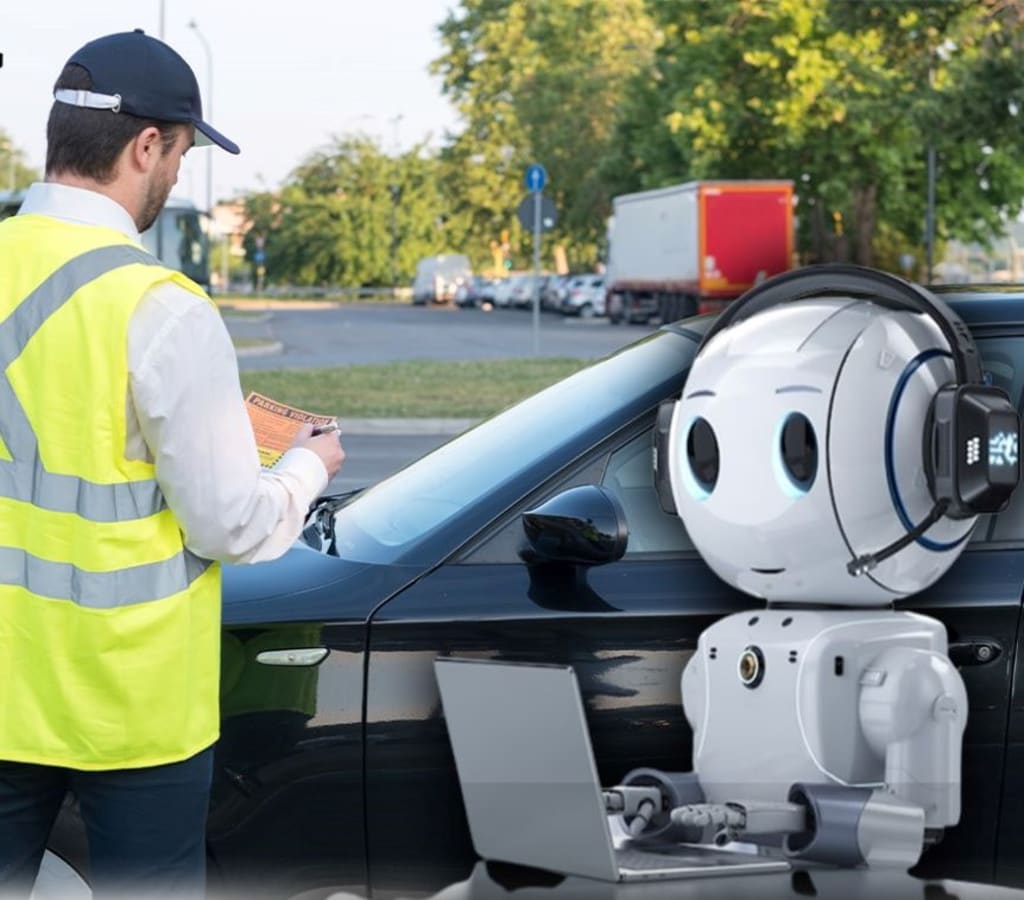Ai Chatbot Helps Student Win Parking Fine Appeal
How Ai is changing the way we deal with Bureaucracy

Introduction
Artificial intelligence (AI) chatbots are becoming increasingly popular, and for good reason. These programs can handle many tasks, from answering simple customer service questions to scheduling appointments. However, one chatbot has taken on a new role: helping people fight back against unjust parking fines.
Recently, a student in the UK was issued a £60 parking fine by a private company. Rather than pay the fine, the student decided to fight it. But instead of hiring a lawyer or writing a letter themselves, they turned to an AI chatbot called DoNotPay.
DoNotPay was created by British teenager Joshua Browder in 2015, when he was just 18 years old. The chatbot started as a way to help people appeal parking fines, but it has since expanded to cover other legal issues, such as getting a refund for a delayed flight or canceling a subscription.
When the student entered their details into DoNotPay, the chatbot asked a series of questions to determine whether the parking fine was legitimate. If it was not, DoNotPay generated a letter that the student could send to the parking company to appeal the fine.
The letter generated by DoNotPay was not just any letter. It was written in a way that was specifically designed to appeal to the emotions of the person reading it. DoNotPay used a combination of legal arguments and persuasive language to make the case that the fine was unjust and should be overturned.
And it worked. The student sent the letter to the parking company, and within a few weeks, they received a response saying that the fine had been canceled.

This is not the first time that DoNotPay has helped someone successfully appeal a parking fine. According to Browder, the chatbot has helped people appeal over 400,000 parking fines in the UK and the US, with a success rate of around 64%.
The success of DoNotPay raises questions about the role of AI chatbots in legal proceedings. While chatbots like DoNotPay can certainly make it easier for people to fight back against unjust fines and other legal issues, some experts worry that they could also be misused or abused.
For example, some people might try to use AI chatbots to generate fraudulent legal documents or to harass individuals or companies with legal threats. Others might argue that chatbots like DoNotPay are only effective because they rely on emotional appeals rather than sound legal arguments.
Despite these concerns, the success of DoNotPay and other AI chatbots suggests that they are here to stay. As AI technology continues to improve, we can expect to see more and more chatbots that are able to handle increasingly complex legal issues.
In fact, some experts predict that AI chatbots could eventually replace many of the tasks currently performed by human lawyers, such as contract drafting and legal research.
Of course, there are also some challenges that come with relying on AI chatbots for legal work. For example, chatbots may not be able to take into account the unique circumstances of each case, and they may not be able to provide the same level of personalized advice and guidance as a human lawyer.

But for many people, the benefits of using AI chatbots like DoNotPay outweigh the risks. By making it easier and more affordable to fight back against unjust fines and other legal issues, these chatbots are helping to level the playing field and ensure that everyone has access to justice.
Conclusion
the success of the DoNotPay chatbot in helping a student appeal a parking fine highlights the growing role of AI chatbots in legal proceedings. While there are certain risks associated with relying on chatbots for legal work, the benefits are clear: chatbots like DoNotPay are often faster, cheaper, and more accessible than traditional legal services, and can help level the playing field for those who cannot afford expensive legal fees. As AI technology continues to advance, it is likely that chatbots will become even more sophisticated and capable, further transforming the legal landscape. However, it is important to ensure that proper regulations and safeguards are in place to prevent any potential negative consequences, and to continue to assess the effectiveness and ethical implications of AI chatbots in legal settings.
About the Creator
Yousuf Shahid
your go-to source for engaging content on travel, food, cars, and technology. Follow for fresh perspectives and insights.






Comments
There are no comments for this story
Be the first to respond and start the conversation.